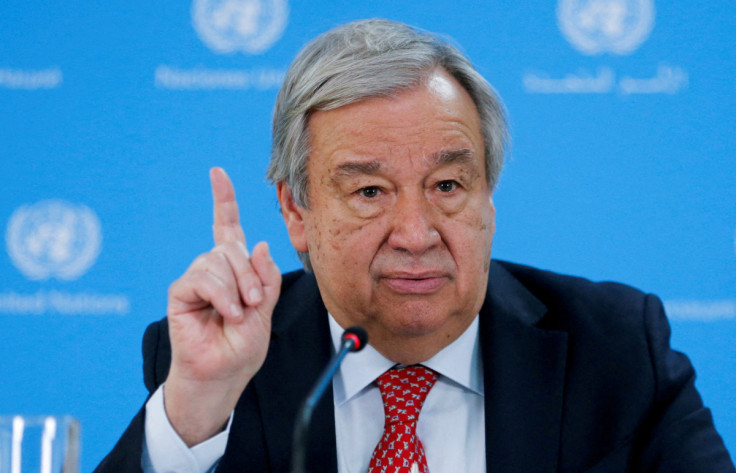UN Urges Rich Countries To Honor $100 Billion Climate Finance Commitment

Secretary-General of the United Nations, António Guterres urged developed countries to keep the pledge and honor the $100 billion commitment of climate finance to developing countries.
Guterres recalled the pledge developed countries made in 2009 at a UN Climate Change Conference in Copenhagen, Denmark. During the pledge taken in 2009, the rich countries promised to help developing countries mitigate and adapt to the impacts of climate change.
Developed countries promised to provide $100 billion every year by 2020 to support climate-related projects and initiatives in developing nations, which often lack resources to deal with climate change problems.
UN's Secretary-General said during the BRICS-Africa Outreach and BRICS Plus Dialogue on Thursday - held at the Sandton Convention Centre, Johannesburg - that "Africa must be considered a priority in all these efforts," SA News reported.
"I have put forward a Climate Solidarity Pact in which developed countries provide financial and technical support to help emerging economies – in Africa and beyond – to promote an equitable and just transition to renewable energy," he said.
He addressed the delegates and disclosed that he has presented an Acceleration Agenda, which will help developed countries commit to reaching net zero by 2040 and developing nations as close as possible to 2050.
Guterres also pointed out the cost-of-living crisis in developing countries, noting that poverty, hunger, and inequalities are growing against the Agenda 2030 for Sustainable Development's objectives.
"Geopolitical divides and conflicts are multiplying with profound global implications, especially the impacts from the Russian invasion of Ukraine," he added.
The Secretary-General continued, "Today's global governance structures reflect yesterday's world. They were largely created in the aftermath of World War II when many African countries were still ruled by colonial powers and were not even at the table."
He warned that the world can't afford a divided global economy and financial system as the International Monetary Fund "estimates that such a fracture could cost 7% of global GDP [gross domestic product] – a cost that would be disproportionately borne by low-income countries, mainly in Africa."
"So, I have come to Johannesburg with a simple message, in a fracturing world with overwhelming crises, there is simply no alternative to cooperation," he said, urging that world leaders should urgently restore trust and reinvigorate multilateralism.
Guterres acknowledged that on average, African countries pay four times more for borrowing compared to the United States and eight times more than the wealthiest European countries.
"Looking ahead, I see two priorities for action and justice. First, on the economic front. Redesigning today's outdated, dysfunctional, and unfair global financial architecture is necessary, but I know it won't happen overnight," he concluded. "Yet we can – and must – take practical action now."
© Copyright 2025 IBTimes ZA. All rights reserved.






















